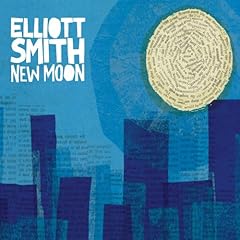HISTORIC MYTHS
a great book that i recommend often, though a bit dry at times (it is a history book), is A People's History of The United States by Howard Zinn. Zinn is a respected historian and professor who writes about history from the less seen perspectives. from the poor. the women. the minorities. the book is incredible in that it exposes how our sense of history has been passed onto us through rosy colored glasses. the history we're taught is that as told by the government, the conquerors and the diplomats. the rich white men in power. we never heard the whole story in school. many times, we never even heard the true story. many of the great heros from our country's founding were actually quite dispicable characters.
Columbus, for instance, was a blood thirsty tyrant. its horrible that time has sugar coated the man in lies. most folks are aware that chris never discovered america. the closest he came was the Bahamas. the deal columbus made: Spain wanted gold and it was known that asia had it (where chris thought he was). if he brought it back, 10% was his, along with land and a governorship and the title of admiral of the seas. shortly after landing and being wholely welcomed by the natives, he seized what little gold the arawak indians had (usually offered willingly). he then enslaved them, sending his men out to take and kill at will. they did so for amusement. over a period of about 15 years, its thought that several million natives died as a result of murder, enslavement and forced mining.
that's chapter 1.
anyway, i was reminded of this book after coming across a list of historic facts that aren't facts at all. its pretty alarming to discover that some bit of information you always held as definitive truth turns out to be skewed or completely fabricated.
Columbus, for instance, was a blood thirsty tyrant. its horrible that time has sugar coated the man in lies. most folks are aware that chris never discovered america. the closest he came was the Bahamas. the deal columbus made: Spain wanted gold and it was known that asia had it (where chris thought he was). if he brought it back, 10% was his, along with land and a governorship and the title of admiral of the seas. shortly after landing and being wholely welcomed by the natives, he seized what little gold the arawak indians had (usually offered willingly). he then enslaved them, sending his men out to take and kill at will. they did so for amusement. over a period of about 15 years, its thought that several million natives died as a result of murder, enslavement and forced mining.
that's chapter 1.
anyway, i was reminded of this book after coming across a list of historic facts that aren't facts at all. its pretty alarming to discover that some bit of information you always held as definitive truth turns out to be skewed or completely fabricated.
HISTORIC MYTHS
Eve ate a bad apple
nowhere in the story of Adam and Eve is an apple mentioned. it is simply called "the fruit of the tree that is in the middle of the garden" (genesis 3:3). it could have been an apple, but it might just as well have been any other sort of fruit.
Walt Disney drew Mickey Mouse
Mickey was the vision of Disney's number one animator, Ub Iwerks. Disney, never a great artist, would always have trouble drawing the character who made him famous.
Marie Antoinette said "Let them each cake"
in 1766, Jean Jacques Rousseau wrote of an incident he recalled from some 25 years earlier, in which "a great princess" was told that the country people had no bread. "then let them eat cake," she replied. when Rousseau wrote of this, Marie Antoinette was an 11-year-old child in Austria. the french revolution would not begin for another 23 years. the myth that she spoke these infamous words was probably spread by revolutionary propagandists, to illustrate her cold indifference to the plight of the French people.
Witches were burned at stake in Salem
the Salem witch trials of 1692 led to the arrests of 150 people, of whom 31 were tried and 20 were executed. first, of the 31 condemned "witches"... 6 of them were men. they were not burned at stake. hanging was the usual method - though one was crushed to death under heavy stones.
Napoleon was a small man
some people believe that Napoleon's domineering ambitions were to compensate for being so physically small... true, Napoleon was called le petit corporal ("the little corporal"), but he was 5' 7" - taller than the average 18th century Frenchman. So why the nickname? Early in his military career, soldiers used it to mock his relatively low rank. The name stuck...
some people believe that Napoleon's domineering ambitions were to compensate for being so physically small... true, Napoleon was called le petit corporal ("the little corporal"), but he was 5' 7" - taller than the average 18th century Frenchman. So why the nickname? Early in his military career, soldiers used it to mock his relatively low rank. The name stuck...
Magellan circumnavigated the world
Magellan only made it half-way around the world (he was killed by natives in the Philippines), leaving it to his second-in-command, Juan Sebastian Elcano, to complete the circumnavigation.
Shakespeare wrote the story of Hamlet
...most of his plays were not original, but adaptations of earlier stories. "The Tragedy of Hamlet, Prince of Denmark" (1603), probably his most famous play, was based on an ancient Scandinavian story.
America became independent on July 4, 1776
as most American school children (and many non-American ones) are aware, America's founding fathers signed the declaration of independence on July 4, 1776. However, the war raged for another seven years before independence from England was finally granted on September 3, 1783. On that day, Britain's George III and US leaders signed the Definitive Treaty of Peace.
Edison invented the electric light
...most Edison inventions were the work of his unsung technicians - and his most famous invention, the electric light, didn't even belong to his laboratory. 4 decades before Edison was born, english scientist Sir Humphry Davy invented arc lighting (using a carbon filament)... The achievement of Edison's lab was to find the right filament that would burn for days on end. A major achievement, but not the first.
Columbus proved that the Earth was round
...most educated Europeans in Columbus's day knew that the world was round. since the 4th century BC, almost nobody has believed that the Earth is flat... Columbus thought that the Earth was pear-shaped. He set sail to prove... that Asia was much closer than anyone thought. Even in this, he was wrong...
Jesus was born on December 25
...there is no evidence whatsoever, biblical or otherwise, that he was actually born on that day. nor is there anything to suggest that he was born in a manger, or that there were three wise men... there are differing views as to why December 25 was chosen as Christmas day, but one of the most interesting is that the day was already celebrated by followers of Mithras, the central god of a Hellenistic cult that developed in the Eastern Mediterranean around 100 BC. The followers of this faith believed that Mithras was born of a virgin on 25 December, and that his birth was attended by shepherds...
...there is no evidence whatsoever, biblical or otherwise, that he was actually born on that day. nor is there anything to suggest that he was born in a manger, or that there were three wise men... there are differing views as to why December 25 was chosen as Christmas day, but one of the most interesting is that the day was already celebrated by followers of Mithras, the central god of a Hellenistic cult that developed in the Eastern Mediterranean around 100 BC. The followers of this faith believed that Mithras was born of a virgin on 25 December, and that his birth was attended by shepherds...
George Washington was America's first President
...during the American Revolution, the Continental Congress (or the 'United States in Congress Assembled') chose Peyton Randolph as the first President. Under Randolph, one of their first moves was to create the Continental Army (in defence against Britain), appointing General Washington as its commander. Randolph was succeeded in 1781 by John Hancock, who presided over independence from Great Britain (see myth #6). After Washington defeated the British at the Battle of Yorktown, Hancock sent him a note of congratulations. Washington's reply was addressed to "The President of the United States". Eight years later, as a revered war hero, Washington himself became America's first popularly elected President - but strictly speaking, the 15th president.
*taken (and paraphrased slightly) from an article written by Noivedya Juddery. Noivedya is a writer and journalist based in Australia.















.jpg)
1 comment:
Actually, the last battle of the Rev War was in 1782 in Kentucky. Participants were not aware that Cornwalis had surrendered 10 months prior in 1781 at the battle of Yorktown. The first shots were in 1775, more than a year before the Declaration. So, technically the war did last for seven years, but started and year before Independance was declared and ended almost a year after England surrendered. I guess I am probably getting just a tad picky.
Post a Comment